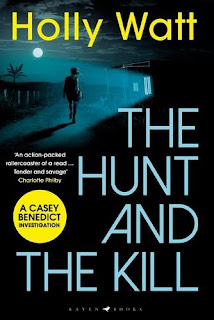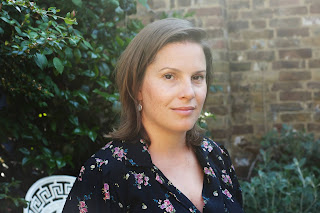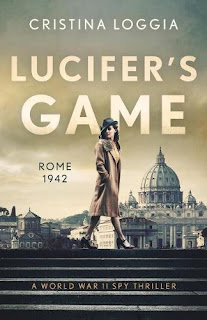Meet Holly Watt Author of The Hunt And The Kill
Holly Watt's third Casey Benedict thriller delves into the world of Big Pharma. We're delighted to interview Holly about why she wanted to write about the topic, her work as a journalist and the strangest place in the world she's ever found herself ...
Download the ebook of The Hunt and the Kill from Amazon or buy the hardback from Thriller Women's list at Bookshop.org. NB: if you buy books through this link we may earn a commission from bookshop.org, whose fees support independent bookshops.
TW: Holly, huge congratulations on the release of your latest novel. Writing is clearly in your blood! What triggered your desire to switch from journalism to writing fiction?
HW: Thank you so much! I’m really excited about this one - I loved writing it, and was sad to finish it, which isn’t always the way with book writing! Switching to full-time writing wasn’t especially the plan, but in 2018, I had a full-time job in journalism in London, a fairly tight deadline for book two and a boyfriend living in Devon. I had to pick two out of three! And I am very happy with the two I chose (although I do still miss journalism).
TW: You won a CWA Ian Fleming Steel Dagger for best thriller for To The Lions in 2019. Was the experience of writing your debut more or less what you thought it would be? What did you find were the biggest challenges?
HW: I wrote To The Lions around my job at The Guardian just after I finished working on the Panama Papers, which was eight months of working in a locked room on 11.5million leaked documents. I think I just needed a different outlet. I didn’t even realise I was writing a book at first. But then it suddenly clicked and I wrote the first draft in just under two months (still not quite sure how that happened - and it took several more drafts before it went anywhere near a publisher). I loved writing it, but it was also definitely a big learning curve. I hadn’t done any creative writing courses or anything like that, so I had no idea what to expect. I found it oddly stressful admitting to anyone that I was actually writing a book - pathetic! Winning the Steel Dagger was an incredible moment.
TW: Your latest novel - third in the Casey Benedict series – is called The Hunt and the Kill. What made you want to delve into the world of medical research?
HW: It goes back several years to when my best friend got her second (!) PhD in antimicrobial resistance. We went out for drinks with some of her colleagues, and I asked one of them why he was interested in antibiotic resistance. He just looked at me and said, “Because it’s going to kill you”. Obviously, that line ended up in the book. After that evening, I became increasingly interested in the subject, because antibiotic resistance really is one of the greatest threats facing humanity at present. I was thinking in terms of newspaper articles, but - a bit like To The Lions - it gradually turned into a book. I ended up travelling out to Zimbabwe to see some of the work being done there to fight antibiotic resistance. Antibiotic resistance is a huge problem there, but - as the pandemic has shown us - a catastrophe there can be here on a jetliner within twelve hours. I also find the world of Big Pharma fascinating and slightly terrifying, although obviously the work done on vaccines in the last year has been utterly extraordinary.
TW: Are there parts of you, or former colleagues, in Casey Benedict? How did you piece her together as a character?
HW: There are autobiographical elements, but it’s definitely not autobiographical, if that makes sense. I did a lot of undercover work as an investigative journalist, and it is a very strange thing to do. It’s getting someone to trust you very fast, and getting them to tell you things they wouldn’t ordinarily tell anyone, while intending to completely upend their life. I am proud of the stories I did - people who absolutely deserved it went to jail - but it was still a very strange job. Casey Benedict has been living that life for several years, and she didn’t start off from the most stable position. So she’s quite complicated! She evolved over several drafts.
TW: When do you write? Do you aim to write a certain number of words per day?
HW: I have a toddling daughter, so at the moment I have three hours in the morning while she is in childcare, and then I write some more while she is napping in the afternoon. I aim for 1,000 words. 1,500 words is good. 2,000 words is a lot of self-congratulation and being excited at the dog, who really couldn’t give a tailwag either way. It’s been very weird writing during the pandemic, and I have so so so missed the external stimulation of normal life.
TW: What is the best piece of advice you’ve ever been given, either during your career as a journalist, or as an author (or both!)?
HW: As a journalist, I was told that everyone has a front page story in them, even if they don’t know it. Think about it. Do you know something that could be the splash in a newspaper? Probably (even if it is about something incredibly random). As a writer, I read somewhere (and now I can’t remember where!) that there should be at least three things going on in every scene. That was advice for writing a screenplay, but it holds true in novel writing too, I think.
TW: During your time working as a journalist, which stories had the greatest impact on you emotionally?
HW: Refugee camps are devastating. Whether it is the “organised” ones I’ve visited - in Jordan or Bangladesh - or the more chaotic ones I’ve seen in places like Lebanon or Libya, where people have fled their homes and are just living in a shack by the side of the road, they are an appalling way for the world to treat people. Charities do their best, but essentially hundreds of thousands of people are given enough to survive, and no more. It’s like pressing pause on your life for years and years and years - lockdown has nothing on it. You see children who’ve spent their entire childhoods in a camp. I will always remember talking to one Syrian man in the Zaatari refugee camp in north Jordan, who was still stunned that his life had been reduced to a small caravan in the middle of this chaos. He had been a doctor in Syria and he just said “If this can happen to me, this can happen to anyone. Never think this can’t happen to you.”
TW: Who are your influences in your writing? And who/what are your favourite authors or genres to read for pleasure?
HW: I love reading basically anything. Crime and thrillers have been favourites all my life, so I’m especially looking forward to reading Eva Dolan’s new book, One Half Truth, as I love the way she writes. Recently, I really enjoyed People Like Her, by husband-and-wife team Ellory Lloyd (they are both friends of mine!). I’m halfway through Jonathan Calvert and George Arbuthnott’s book on the pandemic - Failures of State - which is making me increasingly incensed. The book is a brilliant and important piece of journalism, but the government’s errors are horrifying.
TW: Is the truth really stranger than fiction?
HW: Yes! And it seems to keep getting stranger at the moment. If I’d written a book about Donald Trump being President six years ago, publishers would have laughed. And now we’re in a pandemic, and Boris Johnson is Prime Minister. It’s genuinely hard to find the narrow gap between “reality” and “plausible fiction” at the moment.
Quick fire questions:
TW: The strangest place in the world you’ve ever found yourself?
HW: So many weird and wonderful places! Lost in a nuclear bunker under one of Gaddafi’s palaces in Tripoli. The Arctic Circle with the Royal Marines. Walking along the Great Wall of China. Accidentally ending up in the Seychelles (Don’t ask. My news editor said, somewhat heavily, “Holly, I’ve had journalists turn up in the wrong place before, but never the wrong ****ing hemisphere.” Camp Bastion. Air Force One. Chasing pirates round the Indian Ocean. Wandering around Petra. Sprinting around the Pyramids at dawn (because I had to be in an undercover breakfast meeting within a few hours). Wait, this is the quickfire round, isn’t it?
TW: A book you would recommend for a long haul flight?
HW: For sheer escapism, I love all of Laura Purcell’s books, especially Bone China.
TW: The three items you can’t live without whilst away from home?
HW: Eye mask. Ear plugs. Clean knickers. Yes, I’ve spent a lot of my life on planes.
TW: A lesser known country or region that you would recommend visiting?
HW: It’s not particularly “lesser known”, but there was something spectacularly beautiful about the tea farms of Sri Lanka. I climbed Adam’s Peak overnight (to be at the top for dawn) and then went for a long walk through the farms. It was magical.
TW: Your personal motto?
HW: I’ve always loved the phrase Grace Under Pressure, but never lived up to it!
HW: So many weird and wonderful places! Lost in a nuclear bunker under one of Gaddafi’s palaces in Tripoli. The Arctic Circle with the Royal Marines. Walking along the Great Wall of China. Accidentally ending up in the Seychelles (Don’t ask. My news editor said, somewhat heavily, “Holly, I’ve had journalists turn up in the wrong place before, but never the wrong ****ing hemisphere.” Camp Bastion. Air Force One. Chasing pirates round the Indian Ocean. Wandering around Petra. Sprinting around the Pyramids at dawn (because I had to be in an undercover breakfast meeting within a few hours). Wait, this is the quickfire round, isn’t it?
TW: A book you would recommend for a long haul flight?
HW: For sheer escapism, I love all of Laura Purcell’s books, especially Bone China.
TW: The three items you can’t live without whilst away from home?
HW: Eye mask. Ear plugs. Clean knickers. Yes, I’ve spent a lot of my life on planes.
TW: A lesser known country or region that you would recommend visiting?
HW: It’s not particularly “lesser known”, but there was something spectacularly beautiful about the tea farms of Sri Lanka. I climbed Adam’s Peak overnight (to be at the top for dawn) and then went for a long walk through the farms. It was magical.
TW: Your personal motto?
HW: I’ve always loved the phrase Grace Under Pressure, but never lived up to it!
Thanks Holly!
More about The Hunt and the Kill:
When acclaimed undercover journalist Casey Benedict is asked to interview a young woman with a life-limiting genetic condition, the patient's doctor alerts her to an alarming rise in antibiotic-resistant infections, tipping her off about a potential new wonder drug.If the rumours are true, this new antibiotic could save millions of lives, but no one seems to know if the drug even exists. Then tragedy unexpectedly strikes and Casey begins to suspect a cover-up. But she is not prepared to let the story drop, no matter how much danger she - or those she loves most of all - are put in.




Comments
Post a Comment